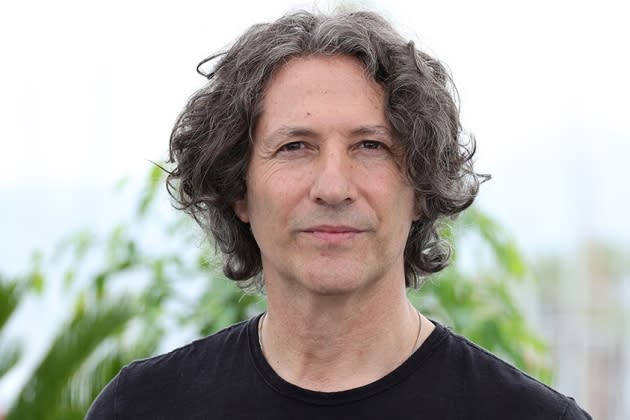‘Zone of Interest’ Director Jonathan Glazer on Portraying Nazis as People: ‘Human Beings Did This to Other Human Beings’
- Oops!Something went wrong.Please try again later.

“The Zone of Interest,” writer-director Jonathan Glazer’s searing Nazi drama about the banality of evil, became the talk of Cannes Film Festival after its debut on Friday night. But the director admits he didn’t know the story he wanted to tell before the cameras were rolling.
“You never really know why you tackle and subject. It’s an ever-evolving journey,” he said at Saturday’s press conference for the movie. “It wasn’t one particular moment that I knew I was going to make this film. When I started the process, I didn’t know what perspective we were coming from.”
More from Variety
In the end result, “The Zone of Interest,” which is loosely based on the 2014 novel by Martin Amis, tells the story of Rudolf Höss, a Nazi commandant who designed and built Auschwitz. It also looks at his relationship with his wife Hedwig, as they create their dream life directly next door to the concentration camp. In crafting a portrait of the Holocaust, Glazer says he conducted an “enormous amount of research” to capture the divide between the Höss family’s mundane domestic dramas and Auschwitz, which lies on the other side of the garden walls.
The director described an intention to capture “the capacity within each of us for violence, wherever you are from.” In the case of “The Zone of Interest,” that meant portraying Nazis as people and not as stereotypical monsters.
“The great crime and tragedy is that human beings did this to other human beings,” Glazer said. “It’s very convenient to distance ourselves from them as much as we can, because we think we don’t behave that way, but we should be less certain than that.”
Sandra Hüller, who plays Hedwig, a “queen of Auschwitz” character that’s particularly chilling to watch on screen, expressed a sense of responsibility in shaping the role.
“Most things aren’t with one perspective,” she said. “I felt a responsibility as a German to portray this woman. I never felt familiar with her. At the same time, there’s no real way to do it right. It was never about doing something extraordinary. It had so little to do with acting, what we did. It was about being respectful with the people around us.”
Producer Jim Wilson says the film is a reminder that people can’t remain complacent about the horrors that take place in their backyard, whether that’s historical examples such as the Holocaust or slavery in America, or more recent instances of prejudice like Florida’s “Don’t Say Gay” laws that are currently threatening LGBTQ+ rights.
“It’s not for us to say if we achieved this intention, but we were trying to present the question and open the space,” he said. Otherwise, the reality is that we are “comfortable demonization of elevating the events in Auschwitz to the level of myth.”
Glazer also spoke about the significance of filming the movie in Poland. “There was never an option for it to shoot anywhere else,” he said. “We tried to look for a place to shoot in other parts of Poland, but I kept gravitating back to Auschwitz.”
“The Zone of Interest” is the director’s fourth feature film after 2000’s “Sexy Beast,” 2004’s “Birth” and 2013’s “Under the Skin.” His latest earned a six-minute standing ovation at the world premiere as the crowd cheered for Glazer and the cast.
In Variety’s review, chief film critic Owen Gleiberman praised “Zone of Interest” as a “remarkable film — chilling and profound, meditative and immersive.”
Best of Variety
Tony Predictions: Best Musical -- Four Stand Poised to Give ‘Kimberly Akimbo’ Some Competition
This 'Fast and Furious' Arcade Cabinet Allows You to Step Behind the Wheel as Dom Toretto
Sign up for Variety’s Newsletter. For the latest news, follow us on Facebook, Twitter, and Instagram.
